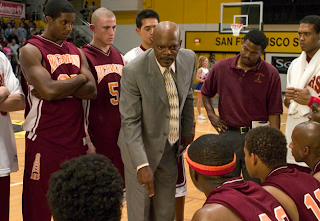My first singing lesson experience
I decided to have singing lessons and the first two teacher's rates were much the same as mine. They seemed like reasonable teachers but were not what I would call results focused. Neither teacher seemed prepared and a typical lesson consisted of 'So let's do some warm ups and then we can look at a song you like". Every lesson seem disconnected from the previous one and although I felt I had learnt a few things I soon realised that these teachers weren't really inspiring me or pushing me to improve. I actually felt that they didn't really care if I improved or not as long as I seemed happy.
The $100 per hour teacher
I then found a teacher who charged $100 an hour (in 1990) when everyone else was charging $25 per hour and at first I thought "This guy's got to be kidding. I can't afford his rates and how does he even justify his prices." He had been recommend to me and I later found out that people like Sting hand Jon Stevens had had lessons with him and he was a trained opera singer who had a reputation for getting results. So despite that his rates were out of my price range I decided to do a term of lessons just for curiosity. He was truly an amazing teacher. I not only learnt the correct way to sing but I became a better teacher. I only did the one term with him because I went to America at the time but those lessons were worth every cent.
Why good teachers charge more
The lesson I learnt was that not all teachers are equal for a very important reason. Good teachers like good doctors, good chefs, good pilots and just about good anything continue to invest in their education. They invest in themselves because they are essentially practicing what they preach and what they preach is the fact that to improve you should find a coach and usually the better the coach the more they charge. In my experience when you pay the more expensive teacher you actually end up getting better value. When I paid around $1200 in lessons (which was a lot of money back in the early 90's) I improved dramatically as a singer and a teacher. I got more value in just a few lessons with this one teacher than I had from the total number of lessons combined from the two previous teachers.
The second reason
There is another reason why some people charge more. My dentist for example is not cheap but he does great work. I have been to dentists in Japan and they are half the price but here is the difference. The Japanese dentist (not all Japanese dentists by the way) was still operating on old equipment and he actually missed some important dental work (root canal) that needed to be done. My Sydney dentist has the latest equipment and regularly attends training and seminars all over the world so he can stay up to date. I am happy to pay more because I know he will get it right first time and save me a lot of costly dental work later.
Look for value rather than price
The value of your lessons should be what counts most. I suggest you try different teachers at different prices and decide for yourself what seems the best value for you. The one thing I don't recommend is going straight to the cheapest teacher without comparing the difference for the reasons stated above.
Free Online Guitar Course
G4 GUITAR METHOD
Please follow the link to subscribe to our free online course.





